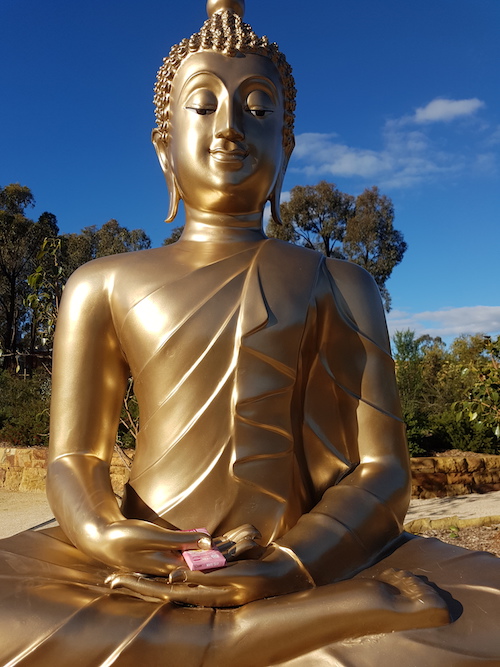 In late summer twenty seven years ago, I stood at a tram stop. With fifteen minutes or so to wait, I decided to pop into the nearby bookstore. It specialised in New Age and spiritual and religious books; I wasn’t particularly interested so why I picked up this particular book, I have no idea. But as I began to read I experienced an uncanny sense of recognition. This makes sense. I may well have missed the next tram. I still have that book.
In late summer twenty seven years ago, I stood at a tram stop. With fifteen minutes or so to wait, I decided to pop into the nearby bookstore. It specialised in New Age and spiritual and religious books; I wasn’t particularly interested so why I picked up this particular book, I have no idea. But as I began to read I experienced an uncanny sense of recognition. This makes sense. I may well have missed the next tram. I still have that book.
It’s Seeking the Heart of Wisdom by Joseph Goldstein and Jack Kornfield,and an introduction to the practice of vipassana or insight meditation. I bought it either ‘at the right time’ or ‘just in time’, depending on how you look at it. I wasn’t doing well in early 1993, and exploring Buddhist philosophy and practicing meditation helped steady me. Back in 1993, it was all totally new to me; over the years that I’ve acquired a small shelf of books on Buddhist philosophy and meditation. I don’t meditate regularly, but there are aspects of Buddhist philosophy that support me daily. I still read Seeking the Heart of Wisdom every few years, and I have other titles by both authors; the funny, wise, Jewish-grandmother Sylvia Boorstein is a favourite, as is Pema Chodron. And here is a new book and a new writer. Timely, or perhaps (again) ‘just in time’.
 Joan Halifax – Zen priest, Buddhist teacher, anthropologist, writer – examines what she calls ‘edge states’.
Joan Halifax – Zen priest, Buddhist teacher, anthropologist, writer – examines what she calls ‘edge states’.
Over the years, I slowly became aware of five internal and interpersonal qualities that are keys to a compassionate and courageous life, and without which we cannot serve, nor can we survive. Yet if these precious resources deteriorate, they can manifest as dangerous landscapes that cause harm.
The five states that Joan Halifax identifies in this book are altruism, empathy, integrity, respect and engagement. I’m sure nearly everyone would nod and agree – “All good!”
But Halifax writes that manifesting these qualities can be like walking along the high ridge of a mountain. The view is sublime, but if a person loses their balance and slips over the edge, any one of these qualities, these ‘assets of a mind and heart’, can become harmful and cause suffering.
An example is altruism. Unselfish service, selfless acts, self-sacrifice… these are admirable, inspiring and in fact necessary if communities and families are to flourish. Just think of mothers! And volunteers of all descriptions and kindly neighbours and good Samaritans and those heroic people who jump in to dangerous situations to save lives. However, Halifax explores the darker side, ‘help that harms’ or pathological altruism.
There are a few varieties. In one, people ignore their own needs. They may end up feeling resentful, overburdened, guilty and frustrated – and thus not in great shape to keep altruism positive.
In another, altruism is rooted in a need for approval, a desire to ‘fix’ people, hubris, even an urge to power over others. Halifax gives the example of international aid gone wrong, where Westerners think they can change the world but don’t actually take the time and effort to find out what people need and want.
There’s lots in this book for me to think about. And also to do. Roshi Joan speaks from her own experience – working in prisons, hospitals and clinics, with dying people and their families, in the civil rights movement – and provides guidance and practices to help foster calm and compassion in difficult circumstances. As I move into the aged care sector, I will likely need this book.
